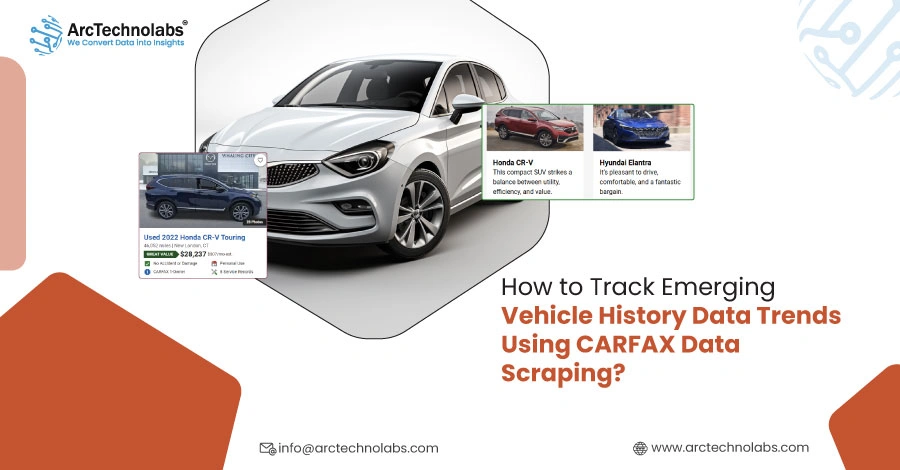
Introduction
In recent years, the automotive landscape has undergone a significant digital evolution, ushering in a new standard for transparency and intelligence in vehicle-related transactions. As concerns grow around used vehicle reliability, accident histories, ownership shifts, and accurate pricing data, industry players are increasingly relying on structured, high-quality data to guide their decisions.
Today, professionals across auto dealerships, repair networks, insurance firms, and vehicle appraisal services turn to CARFAX Data Scraping as a trusted method for extracting granular insights from extensive vehicle history records. By accessing well-organized datasets, these stakeholders are better equipped to analyze pricing behavior, spot recurring trends, and estimate resale values with greater precision.
This blog delves into how this data extraction approach is shaping emerging trends in the automotive data ecosystem—and what it signifies for businesses aiming to stay competitive in a data-first marketplace.
Evolving Expectations from Vehicle History Reports
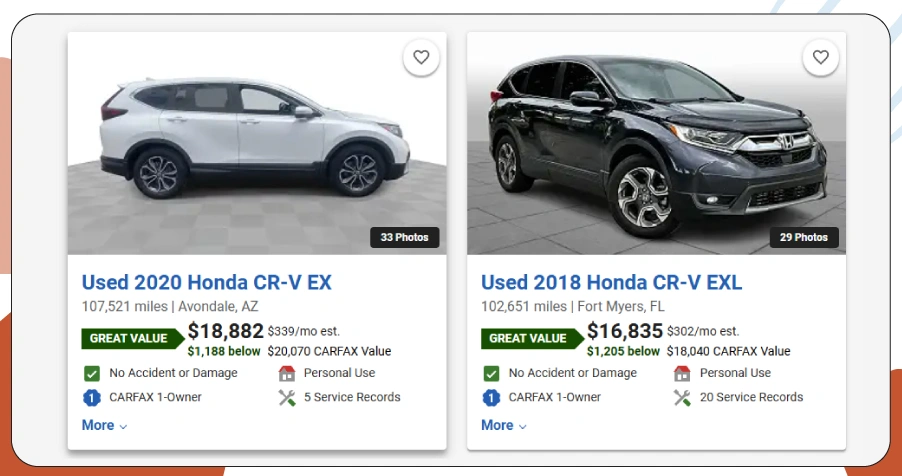
Today’s vehicle buyers aren’t satisfied with just the exterior appeal or price—they want contextual transparency. Buyers expect access to a car’s complete backstory, including accident history, service logs, ownership transitions, title status, and mileage verification. In response, automotive professionals are turning to CARFAX VIN Data Extraction to meet evolving demands with accurate, automated data pipelines.
Modern expectations from vehicle history data include:
- Instant access to updated vehicle history reports across thousands of listings.
- Comparative analysis tools for different brands, models, and regions.
- Confidence is built on accurate, traceable ownership and repair records.
- Competitive pricing is grounded in real-world usage and vehicle condition.
- Reliable inputs for resale valuation, insurance, and extended warranties.
These shifting expectations are now the backbone of modern Vehicle History Report Trends, where web-extracted insights are driving more intelligent decisions.
Key Trends Emerging from Vehicle History Report Data
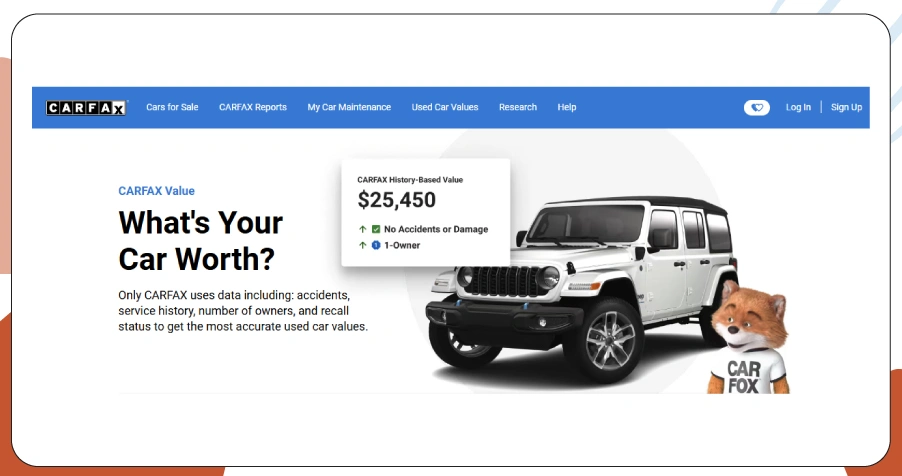
With increasing digitization across the used car market, scraping vehicle history data isn’t just efficient—it’s becoming vital. By leveraging tools that Scrape Used Car History, stakeholders can now detect trends and risks previously hidden in fragmented records.
Here are some prominent patterns being uncovered:
- Spike in Mileage Accuracy Concerns
Web-scraped odometer data often reveals inconsistencies in vehicle mileage over time, flagging potential rollback fraud for further investigation.
- Growth in Title Brand Impact on Pricing
Listings with branded titles—such as salvage or flood damage—are priced up to 40% lower. The Ability to Scrape Title And Accident Records helps quantify and track this devaluation.
- Resale Value Linked to Service Consistency
Vehicles with complete maintenance records from a Vehicle Inspection Report Dataset tend to command premium resale prices due to proven upkeep.
- Regional Trends in Damage History
Data extracted from the Vehicle Damage History Dataset reveals localized patterns, like flood-prone areas showing more water-damaged cars, or increased collision history in dense metro zones.
- Increased Reliance on Real-Time Listings
The emergence of Car Listing Report Scraping 2025 reflects a growing demand for up-to-the-minute inventory trends and dealer insights, giving platforms a real-time competitive edge.
Strategic Benefits for Automotive Industry Stakeholders
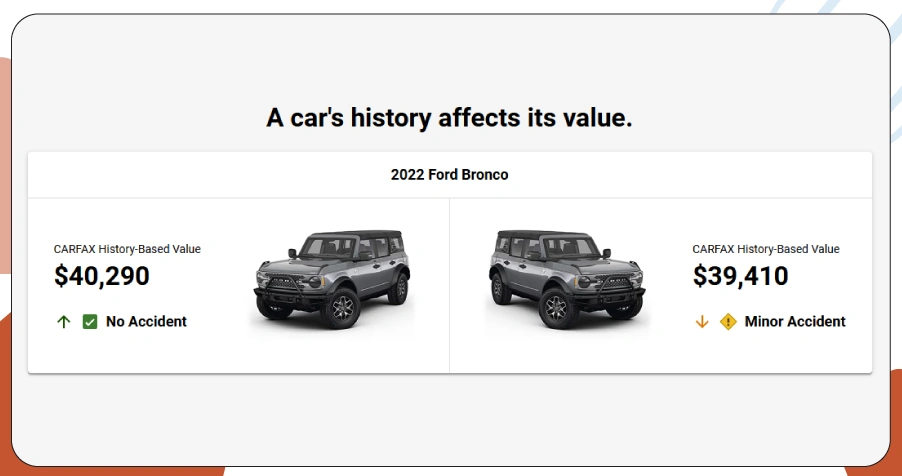
Extracting structured insights through CARFAX VIN Data Extraction empowers stakeholders across the automotive landscape to make faster, smarter, and more reliable decisions, driven by verified vehicle background information rather than assumptions.
Here's how each stakeholder group is benefiting:
1. Used Car Dealerships
- Identify better vehicle stock through reliable history data.
- Adjust pricing dynamically using scraped accident and title insights.
- Decrease customer disputes by verifying vehicle condition before sale.
2. Insurers
- Improve policy underwriting using the Vehicle Damage History Dataset.
- Enhance risk scoring with historical accident trends.
- Detect potential fraud from title and repair inconsistencies.
3. Fleet Managers
- Track maintenance schedules using the Vehicle Inspection Report Dataset.
- Model lifecycle cost and optimize vehicle replacement timing.
- Analyze fleet health via structured Used Car Dealership Data.
4. Auto Marketplaces & Platforms
- Provide consumers with advanced filters and verified listings.
- Use the Car Listing Report Scraping 2025 data to reflect real-time availability.
- Offer a superior shopping experience with embedded history data.
With Auto History Data Analysis, each decision point—whether buying, underwriting, or listing—can be shaped by factual, real-time intelligence extracted from diverse automotive datasets.
Where Does Reliable Vehicle History Data Come From?
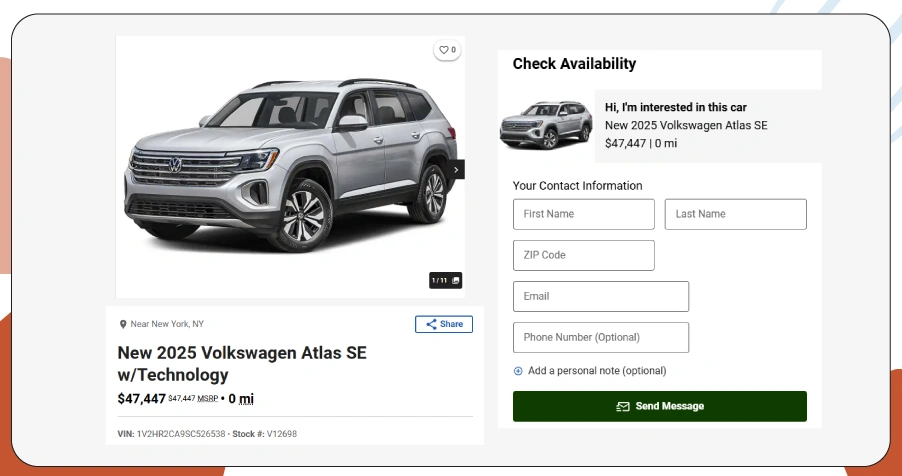
While CARFAX is a key player in this space, comprehensive auto history analysis requires integration of various structured and semi-structured data sources. Scraping success comes from building a multi-source pipeline powered by efficient extraction methods.
Key datasets include:
- National accident and branded title registries.
- Dealership platforms logging service and repair details.
- Active car listings that serve as market pricing benchmarks.
- OEM recall notices and warranty updates.
- Public-facing consumer reviews and dealership ratings.
Together, these enable businesses to Scrape Used Car History with precision and depth, turning disconnected data points into actionable automotive insights.
Tools and Techniques Powering the CARFAX Extraction Process
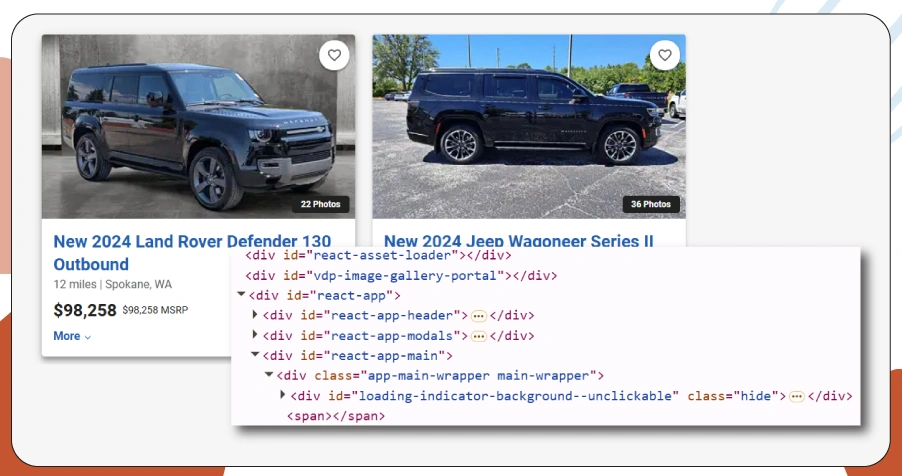
Extracting structured insights from sources like CARFAX involves a combination of robust technology and ethical practices. These methods allow for consistent data retrieval while respecting compliance boundaries.
Standard tools and techniques include:
- Browser automation scripts mimic user interactions on history report platforms.
- Secure API access for streamlined, structured data collection (when available).
- Text parsing to process freeform and unstructured reports.
- Machine learning models that clean, deduplicate, and standardize entries.
- Filtering logic to flag duplicate or misleading records.
Crucially, ethical scraping practices remain a cornerstone, ensuring all data is extracted responsibly and used in a compliant, business-forward manner.
Future-Forward Insights from Vehicle Data
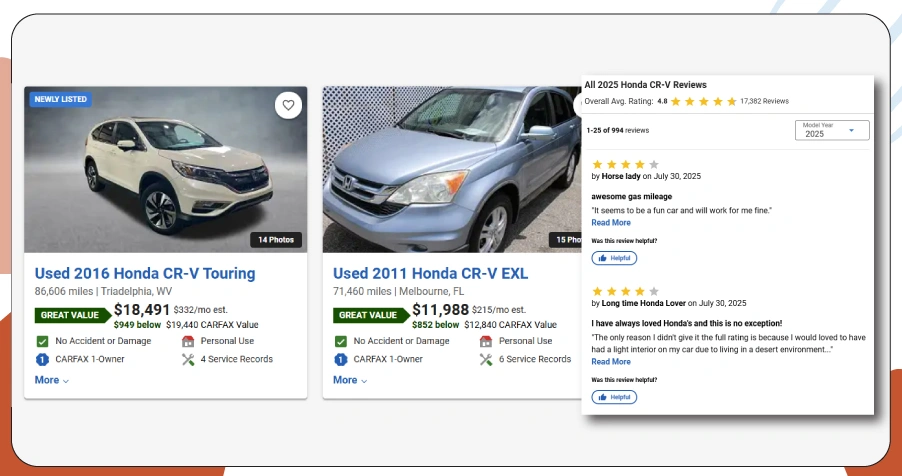
As the automotive industry accelerates into 2025 and beyond, the strategic role of Auto History Data Analysis is expanding. With AI and automation leading the charge, businesses are embracing vehicle history data not just for reporting, but for prediction, personalization, and fraud detection.
Key advancements include:
- Innovative vehicle scoring systems are based on accident, title, and service history.
- Tailored marketplace recommendations powered by location and vehicle data.
- Real-time fraud flags are generated by AI models scanning historical inconsistencies.
- Enhanced consumer tools created from insights drawn from the Vehicle Inspection Report Dataset.
The fusion of intelligent systems and scraped vehicle data will continue to unlock new value layers, enabling every stakeholder to make sharper, faster, and safer decisions.
How ArcTechnolabs Can Help You?
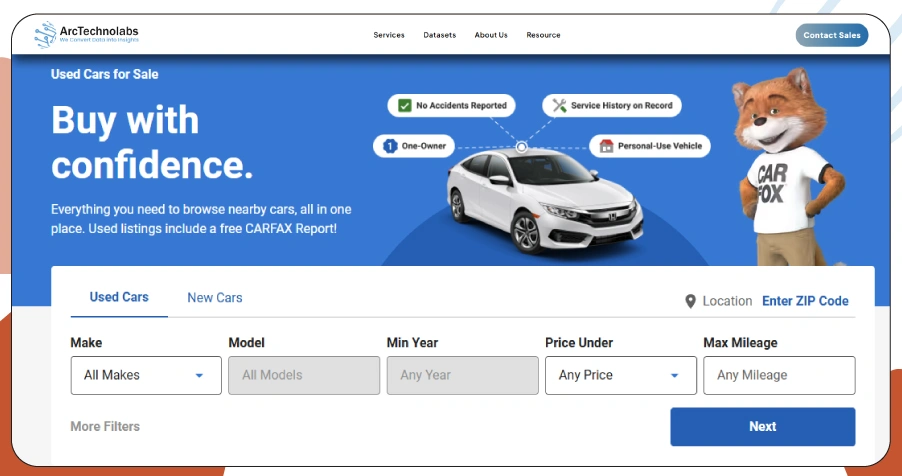
We offer advanced solutions tailored to extract valuable insights through CARFAX Data Scraping. Whether you’re a dealership, insurer, marketplace, or analytics firm, we help you turn raw vehicle history data into clear, actionable intelligence—securely and at scale.
Here’s how our team empowers your operations:
- Collect structured vehicle records from thousands of listings.
- Automate VIN-level extraction for accurate historical tracking.
- Integrate real-time data into your internal systems.
- Identify data gaps and minimize manual verification.
- Stay compliant with scraping standards and regional regulations.
With us, you gain more than just data—you get clean, well-mapped insights, including access to an enriched Vehicle Inspection Report Dataset that supports reliable decision-making across your fleet or listings.
Conclusion
As the automotive market grows more competitive, businesses need sharper tools to make confident decisions. With CARFAX Data Scraping, you can access more profound insights into vehicle histories that directly influence pricing, risk, and buyer trust. It enables businesses to make smarter, faster, and more transparent decisions in a competitive market.
From accident records to ownership trails, tapping into evolving Vehicle History Report Trends helps you stay proactive, not reactive. Contact ArcTechnolabs today to discuss your vehicle data challenges—we’re ready to help you build custom solutions that fit your goals.







